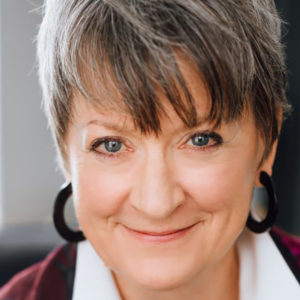 Each year, Spirituality in the 21st Century invites speakers and community members to come together to explore and expand our thinking about our spirituality and relationships with ourselves, others, Creation and the Source of All Being. Last year, Jeremy Lent explored the intersections of science and ancient wisdom. His words called us to work toward an ecological civilization. This year, we continue this important exploration. We will focus on how we can awaken to possibilities, become more resilient in the face of complex challenges and create change.
Each year, Spirituality in the 21st Century invites speakers and community members to come together to explore and expand our thinking about our spirituality and relationships with ourselves, others, Creation and the Source of All Being. Last year, Jeremy Lent explored the intersections of science and ancient wisdom. His words called us to work toward an ecological civilization. This year, we continue this important exploration. We will focus on how we can awaken to possibilities, become more resilient in the face of complex challenges and create change.
Our speakers will help us remember three things:
• Even in the face of complex challenges like the climate crisis, we can cultivate hope.
• Solutions will emerge from our connections, not in isolation.
• The accumulation of simple actions can have a transformative effect.
“Hope is ‘that virtue by which we take responsibility for the future.’”
—Lyanda L. Haupt, Rooted, p. 36
How might we cultivate hope? The Pew Research Center has found that most of us are sad or anxious about the climate crisis. We are uncertain about the future, and our fears often cause us to turn away from that which seems beyond our ability to control. Greta Thunberg reminds us that uncertainty is the home of possibility. In order to reorient ourselves to possibility, it will be essential to examine our perspectives, remain curious and practice compassion.
Paul Hawken suggests that one of the most hopeful antidotes in these difficult times is to pay attention to the growing movement of self-organized congregations and groups dedicated to change (Susan Bauer-Wu, A Future We Can Love, p. 86). Hope comes from seeing ourselves as part of this larger whole. Many writers speak of community connections and limit it to people. Reconnecting with the Earth community is as important as attending to what’s happening in the human community—perhaps more so, as those relationships have been neglected for so long by many of us.
Out of these connections, we begin to understand the actions we are called to take. From that, we glimpse the possibilities that are more than we will ever comprehend—and hope arises.
“The difficulty is that with the rise of the modern sciences, we began to think of the universe as a collection of objects rather than as a communion of subjects.”
—Thomas Berry
The Mindfulness Initiative echoes Berry’s words. They acknowledge that “climate change is a physical reality, demanding urgent political and practical solutions.” But more importantly they emphasize that “its inner dimension, overlooked entirely by mainstream approaches, is a crisis of relationship … Lack of conscious connection with ourselves, with others and with the world we share drives this crisis.” They join the voices often heard at Spirituality in the 21st Century that have been urging us to awaken (or perhaps more accurately reawaken) to our place in a deeply interconnected and interdependent universe. Our individual thriving depends on the thriving of the whole.
To reawaken to these truths and build our stamina for the work ahead requires us to move toward mindfulness. This move will help us to examine our mental models of how the world works. Our western culture prizes separation; our souls know that we are interwoven into the fabric of the cosmos, deeply connected to Earth. When we fray these connections, we are caught in loneliness and grief for this loss of kinship—whether we realize it or not. This is Thomas Berry’s call to inscendence that is aided by deepening connections to the living world around us. “It simply can’t be emphasized enough that our culturally dominant narrative of ‘separation from,’ ‘power over’ and ‘ownership of’ nature creates the mistaken belief that we can manage, technologically innovate and ‘carbon’ trade ourselves out of the evolutionary dead end we have been heading into for a couple of centuries” (Daniel Christian Wahl, Building a Regenerative Future, May 26, 2022).
It is time to act. Inaction has the same effect as denying the crisis. Only 27% of respondents in a recent Pew Research Center survey believe that individual Americans can do a lot to reduce climate impacts. The largest percentage appear to believe that the large businesses and corporations are responsible and able to make change. As an antidote to this sentiment, I would offer the words of Daniel Christian Wahl, who asserts that “a regenerative human impact on Earth is not only possible but has been the norm for most of our species’ deep history.” Unless we attend first to our soul purpose—living more closely aligned with and learning from the wisdom of the living world—we risk rushing to action based on our ego needs or our rational thinking. The work to which we are called is often beyond our understanding. Discernment can guide us to action that we don’t fully understand with results that will only be apparent far beyond our lifetime.
Together we can continue to build our capacity to “co-create regenerative futures” (Wahl). The journey will be iterative and messy. We cannot allow ourselves to get waylaid by notions that there is only one solution and it will be delivered by others. We, ourselves, are the collective engines of positive and transformative change. We can create the positive networks that amplify the impact of each small effort. Reweaving our connections to each other and all of Creation will help us sustain each other for the road ahead.
Our annual Spirituality in the 21st Century event offers the opportunity to hear from three speakers deeply engaged in responding to the climate crisis and awakening our commitment to change: Susan Bauer-Wu, author of A Future We Can Love; Dr. Leah Rampy, former director of Shalem Institute and author of the just-released Earth & Soul: Reconnecting amid Climate Chaos; and Rev. Veronica Johnson, Outreach Director for Faith in Place.
Join us April 26–27 to be inspired by and learn from leaders who are committed to creating a hopeful and regenerative future. We encourage you to come with your friends, your congregation or whatever group of committed humans to which you belong and weave the connections necessary to move towards a thriving future for all.
—Leslie Wright, originally published in Prairiewoods’ March/April 2024 Newsletter
Leslie Wright is Prairiewoods’ director and is looking forward to attending Spirituality in the 21st Century: Hope in Action April 26–27. This year’s event features Susan Bauer-Wu, Ph.D.; Rev. Veronica M. Johnson; Leah Rampy, Ph.D.; and musician Sara Thomsen. Learn more at prairiewoods.org/spirituality-in-the-21st-century.


